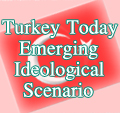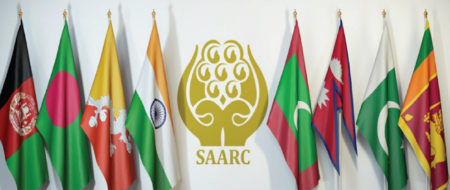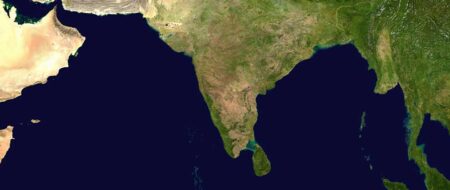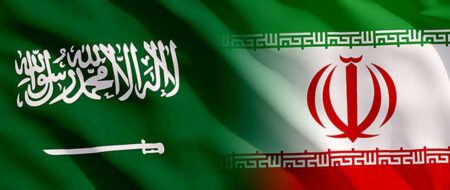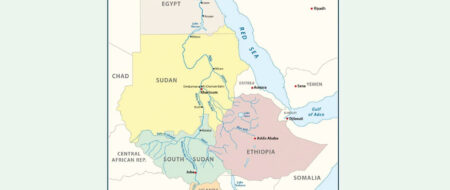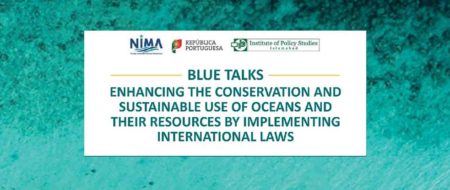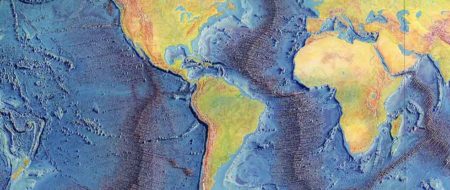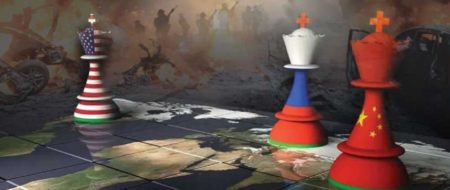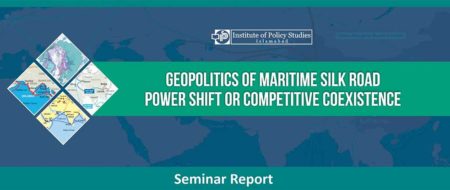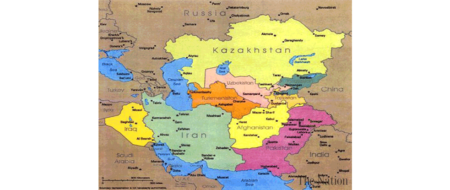Turkey Today: Emerging Ideological Scenario
Comments and Questions II
Q: I would like to know how Turkish people see the process of EU membership in general. Is there any dissension between secularist and Islamist forces?
Dr. Bacik: Probably 55 percent people support the process of European Union membership. Yet, the trend is changing fast. For example, there were two groups ten years ago: one for it and the other against it. Now, there is a third group that expresses disenchantment with the European Union mainly due to the fact that the process has been going on since the 1950s and is becoming boring for people. In this context, it might be difficult for the government to find the pressure group behind its endeavor in that direction. Although this third voice, a combination of religious, secular, and liberal streams, is weak in Turkey at the moment, it is likely to play a critical role in the future mainly because of the fact that no nation could wait for 30 or 40 years in expectation of something that seems unattainable.
Q: Will you please enlighten us regarding the state of civil-military relations in Turkey?
Dr. Bacik: Probably Pakistan is the best place to explain this issue, as Turkish civil-military relations can be compared with those of Pakistan. In general terms, the civilians in Turkey are becoming capable of ruling the state rationally. For instance, several meetings were held between the government and the army regarding the appointment of military generals and officers in August 2010. The government vetoed some of the appointments and the military had to respect the decisions of the civilian regime. This shows that civilians are assuming more powers in the Turkish political system in comparison with the past. However, as it is said, social transition takes time: the army is learning, so is Turkish civil society. Nevertheless, there is a general consensus that if Turkey wants to play a key role at the regional and global level, it needs to enhance its democratic character.
Q: Will this trend continue even if there is a change in government?
Dr. Bacik: It would be wrong to say that Turkish government cares too much about the military now. Of course, the bureaucracy is important in terms of its ideas, situational analyses and advice, but the Turkish government is fully capable of ruling the state rationally. On the other hand, the army has lost several contests with the government in the last two years and it is not in a position to make any dramatic shift in AKP policies in specific areas.
Q: There are two interrelated questions. In the early 1990s, there was a Hizmet movement in Turkey that established schools where the Qur’an was taught in about 76 provinces out of the 81. Interestingly, these 76 provinces were the major suppliers of recruits for the army. No doubt their understanding of Qur’an and Islam was different from the Kemalist approach, and it would likely influence the military thinking. That is most probably the impact of Necmettin Erbakan and his movement. It seems important to understand whether the AKP still bases its movement on the concepts of Erbakan, and whether the present Islamist movement is a continuation of it or not?
Dr. Bacik: Just to clarify a historical point, it should be noted that Recep Tayyip Erdoğan left Necmettin Erbakan in 1990s; so did the constituencies of Erbakan. Erbakan remained out of politics for legal reasons and he appointed a politician, Numan Kurtulmuş, to lead his movement. Later, he also left Erbakan, created a new party People’s Voice Party (Halkın Sesi Partisi), and further weakened his position. It will be difficult for Erbakan to get even one percent of votes in the June 2011 elections. Some would call his party as the party of Erbakan lovers. Furthermore, he is very old now and spends much of his time in hospital. In this context, it seems his role in the Turkish politics will be minimal, if any.
Q: I also have two questions to ask. The first is with regard to civil-military relations. A paradigm shift has been observed in recent years under the AKP government. Many examples can be cited in this regard but recently two rather visible benchmarks appeared, namely, the reconstitution of the National Security Council and the September 2010 referendum for changes in the constitution. Both the initiatives curtailed the direct role of the military, bureaucracy and judiciary in national politics. Is this because of the booming economy, public opinion, or support for AKP’s policies? My second question is with regard to Israel, which is a very important issue because Israel has strategic importance for Turkey and vice versa. Was the exchange of statements between Ankara and Tel Aviv in the aftermath of Israel’s aggression on Gaza and the Freedom Flotilla incident an expression of Islamic sentiment or there are some other factors behind the changing trend?
Dr. Bacik: First of all, AKP is an important player but there are some other political parties as well that struggled for amendments in the constitution and a minimal role of the army in politics. A question, however, arises: Why is there no coup d’état against AKP? The reason is not that the military officers have become more democratic. It is rather because of the rising demand for the control of civilian instruments on domestic politics, ensuing from the free market economy, rise of the middle class, new intellectuals and universities. If the Turkish cities are prospering through the export of the country’s products and bringing billions of dollars of foreign exchange, no one would want to risk this stability. If the generals violate these rules of domestic politics, they know that Turkey will lose a lot in terms of economic interests, intellectual interests and societal interests. So, the main factor is not ideology but the civilian actors motivated by economic gains who are criticizing the role of the army in politics. It is important to understand this trend. In this context, AKP is not the only party that gets the credit. However, it is the first political party in the government which can mobilize and employ the civilian and economic instruments against the army.
With regard to the recent hype between Turkey and Israel, it is a complex situation. Both the countries have played a kind of role that should be criticized. Turkey has the instrument of soft power in terms of its communication between the East and the West. If it is correct, Turkey should not lose any country, including Israel, which is a key player in the region. On the other hand, there is a serious issue of political stability in Israel. The nearer the country gets to a new election, the more radicalized its domestic politics gets, which in turn creates instability in the region. In the context of Turkish security thinking, Israel is creating threats for Ankara indirectly.
Secondly, Israel has some problems in understanding Turkey’s vision in the region vis-à-vis Syria. It should be remembered that Syria used to be an ideological state fifteen years ago and Turkey made an effort to bring it back to the international system. Losing such Turkish initiative will not benefit Israel.
Thirdly, it is the basic theory of international relations that domestic and international politics should not be confused with each other. It seems Israel believes that the future of its interests in Turkey is strictly linked with the Kemalist understanding of the Turkish state. It needs to realize that societies are in a continuous process of evolution and things change in due course. Nevertheless, both the countries would not want to preserve the status quo because they know that it would be counterproductive for them.
Lastly, the exchange of statements between the two neighbors does not seem to be motivated by ideological factors. From the Turkish point of view, it might have wanted to increase its leverage in the Middle East and strengthen its public image in the region.
Q: My question is also related to Israel, but in a different context. The common perception in the Muslim world is that Israel is the fifty-third state of the United States of America. On the other hand, Turkey-US relations are of strategic importance for both parties. In response to the recent developments, has there been any reaction from the United States on the change or shift in Turkish policy towards Israel, and what is the public opinion in Turkey about this shift?
Dr. Bacik: Besides the issue of Turkish membership in the European Union, the Turkey-Israel relationship is of great importance for the United States. However, all the actors seem to be waiting for the June 2011 elections. Probably, the United States and Israel know that creating emotional hype near the elections would be monitored by the opposition that might change the future dynamics. After the elections, the Turkish government may try to take some concrete steps. The general realization among the three is that the status quo is not the final solution. The American academics are of the opinion that Israel is the key actor in American Middle East policy and, from the American perspective, it would be very difficult for the United States to keep a balance between Turkey and Israel if they have problems with each other. Yet, the main difficulty will be for Turkey and Israel, because the exchange of strong words and criticism of each other can impact their relationship immensely. If this trend continues, it will become difficult for them to devise a policy towards each other.
Q: The Ottoman Empire had a great significance for the Muslim world. In fact, the Muslims are proud of its Islamic role and character in the past. With the rise of Islamist party to power in Turkey, is there a chance that it would spur on Muslim revivalism?
Dr. Bacik: Of course, Islam is very important in Turkey and the people are proud of their religion and practicing it, but it is looked at in a different way as compared with the way it is perceived in Pakistan. Even during the Ottoman rule, there were a few traditional laws but the final decision regarding the interpretation of fiqh (Islamic jurisprudence) was not carried out by the Sheikh ul Islam but by the head of the Ottoman Empire.
Another important point is that AKP is not Islamist. The term “Islamist” is used by means of necessity in the Western countries, and the same term is blindly applied by the Muslims as well. It is a typical Western label that creates problems in understanding Muslim societies. The reality is that there is no institution in Turkey which can be called Islamic. There are groups that draw inspiration from Islamic ideology but the people in general, as a legacy of the Ottoman Turkic traditions, believe that Islam is a faith about human being; it is not about corporate identity. That means the social interaction is shaped by the religion in Turkey, but it is not the basis of political identity.
Chair: I would request Prof. Khurshid Ahmad to give his valuable opinion on the points that have emerged in today’s discussion before we move on to conclude the meeting.
Prof. Khurshid Ahmad: I think it was a very intellectual, stimulating and challenging presentation. There are a few points that I would like to share. In the Turkish Ottoman past, customs and traditions had a role but the overall framework remained Islamic particularly in the whole field of civil law and criminal law. Contemporary Turkey can be regarded as a great experiment in rediscovering Islam’s role, historical tradition, and the method to adapt and adjust it to face contemporary challenges. Therefore, if Kemalism was the thesis, Erbakan represented the antithesis, and AKP, somehow, represents the synthesis. Dr. Erbakan, Abdullah Gül, and Ahmet Davutoglu are different colors of the same movement: the Islamic tradition and ethos are very much in their blood.
Erbakan has played the role of a catalyst but it is also correct that he is now becoming more and more irrelevant because of certain mistakes he made. Yet, AKP could be regarded as the continuation of the same with a difference: it has realized the major constraints and how to move keeping them in view. For Turkey and the Muslim World, it is not wrong to say that democratization and Islamization are two sides of the same coin—more democracy would lead towards Islam. In the 2006 survey by John Esposito titled “Who Speaks for Muslims,” 86 percent of the Turkish people have expressed that religion is an important part of their daily lives while in other Muslim countries, this percentage is 80 to 90 percent. This thinking of the people cannot be ignored.
Finally, even in the American model, there is a need to look into the new work of Samuel Huntington, “Who Are We,”[1] in which he emphasizes that whatever may be the official relationship between religion and state, American identity should be based on not only Christianity but Evangelical Protestantism. This is a ground reality which cannot be just wished away.
Therefore, while examining the mobilization in the Muslim world, it is important that the analysis should be comprehensive, drawing upon political, sociological, and economic factors. More importantly, the historical, cultural and ideological realities must also be an integral part of the analysis for forming a balanced picture.
[1] Samuel P. Huntington, Who Are We: The Challenges to America’s National Identity (New York: Simon and Schuster, 2004).


